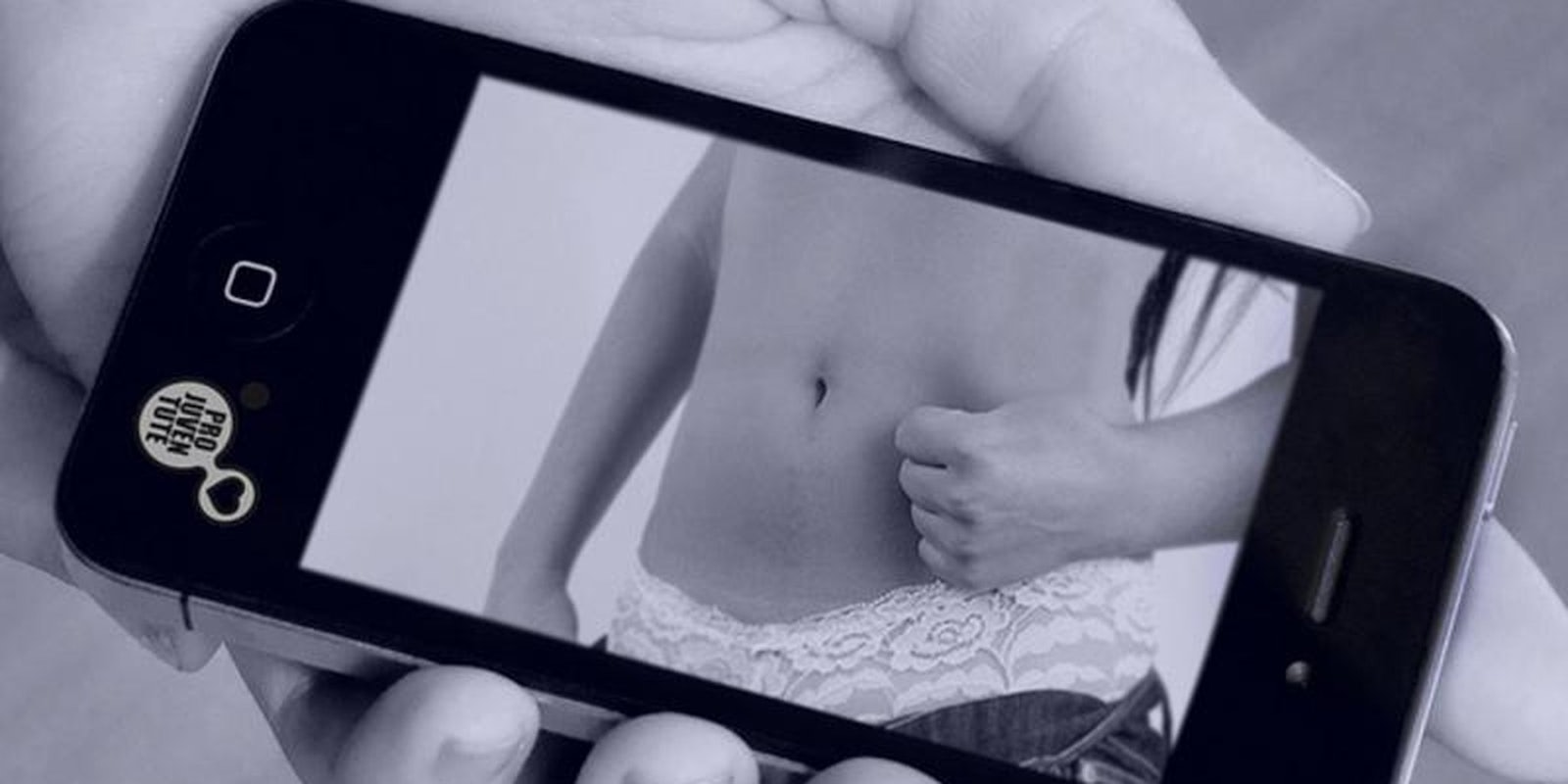Sexting, Facebook messaging, emailing, sending flirty emojis… All are innocent enough activities between you and your significant other. However, when these things occur outside of your relationship with a third party, it may not be as black and white an issue. Chances are, many of us have been on one end of the spectrum, whether we were in the relationship or out of it. There are lots of varying opinions on the matter, but what counts as cheating these days?
“In my opinion, technology can easily start affairs whether physical or emotional,” said Ana M. Aluisy, a mental health counselor and marriage and family therapist. “Technology provides a safe place to communicate intimate information with someone other than your partner at a distance.Creating intimate moments with other than your partner can be considered by many like cheating. Ultimately, it depends on your partner’s expectations of how to exercise the trust given.”
Cheating has also become a big business—private eyes, computer forensic specialists, and even a flying security camera are all ways to see if your partner or spouse is cheating. “Cheating’s always been around, but technology has changed how humans interact with infidelity,” said Jackie Wu, founder of a flying security camera that syncs to your phone. Just as you can use technology to enable affairs, so too can you use technology to catch it.”
We asked Bustle readers—and some other experts—to chime in on what they consider to be cheating, especially in this technologically-heavy age.
1) Shane, 34
Shane’s now-ex-husband cheated on him and he first discovered it through suggestive photos in his phone, “not ones you would send your friend. “Discovering or suspecting cheating is no longer lipstick on the collar or a perfume/cologne you don’t recognize. It can be hidden for months or, in my case, years through technology. Set ground rules in your relationship. Anything you don’t want the person to find out about—emotionally, physically, sexting—all are under the umbrella of cheating. Everything is hidden behind that veil of technology.”
2) Courtney, 38
“Someone might think a sexual encounter is cheating, but someone else may think it’s only if there’s an emotional connection. In my eyes, you aren’t cheating on someone until there’s a commitment—therefore, when you’re dating, before being physical, you’re not cheating.”
3) Zach, 24
“Talking with exes is okay, playing around on dating apps is okay (though messaging new people might be going a bit far and signify emotional neediness), hanging out with people of the same sex is okay, as long as you’re constantly asking yourself, ‘If my partner found out about this and its particulars, would they feel like their trust is being violated?’”
4) Mark, 45
“It is not necessarily cheating if you have lunch or dinner with someone of the opposite sex, but it’s a good a idea to let your significant other know about it before you go. It is the intention that matters.”
5) Mick, 35
“Picture whoever you are dating doing the same thing(s) you are doing or considering doing. If you would feel like you were being cheated on as they did these same things, then it’s probably cheating.”
6) Scott, 32
“I’m a bouncer at a big club in Miami, so I have to be stern with clients but also personable. Sure, women may think it’s cheating when I’m being extra friendly to the ladies and, sometimes, I get texts that, yeah, my girlfriend wouldn’t love to see. I would never cheat on her, though. I think a little e-flirting now and then is not a big deal.”
7) Anne, 51
“Are you hiding it? It’s cheating.”
8) Dr. Suzana E. Flores, clinical psychologist and author
“In my book, I address how technology, in particular the use of smartphones and social media, have changed the game in terms of how we perceive our relationships. For example, Millennials do the majority of their flirting and cheating on social media networks because the privacy features, instant accessibility, and IMs make it easier. Additionally, the features of many of these networks increase temptation by giving us daily access to other people, former flames, etc. Many people report that they fall in love with other people’s avatars–because on these networks, we only see what another person wants us to see. Too often we are exposed to the created, edited and embellished version of a person’s personality… Social media is leading to changes in romantic behaviors. For example, Facebook is linked to a 20% divorce rate in the U.S. alone and 70% of people stalk their exes on social media.”
9) Ana M. Aluisy, mental health counselor and family therapist at Come Get Help, LLC
“In my work with couples trying to increase trust, technology is more present these days than ever. One partner can be having an intimate moment with another person while sitting right next to their partner. I also see that once the partner realizes that there is ‘something’ going on, they start investigating for more and, what do you know, with technology you can always retrieve information and proof of the breaking of trust.”
10) Dr. Jane Greer, marriage and family therapist and Shrink Wrap media commentator
“Anything you’re not comfortable sharing or showing your partner may be getting into the ‘cheating’ zone. You may not have actualized it yet and made it a formal betrayal, but these actions are moving in that direction. You’re certainly in the arena of emotional cheating, which is a parallel road to sexual infidelity. Sexting is definitely an emotional betrayal; however, it’s not actually cheating because you haven’t done anything physical with that person yet. Plain and simple, it’s going too far if you want to hide it from your partner. In sexting, both words and photos carry an inherent risk of emotional cheating… The bottom line is, if a behavior is taking away from your primary relationship, it can create a disconnect and place you in a danger zone. This makes it more probable that you’ll become unfaithful and betray your partner.”
11) Dr. Jess, Astroglide’s resident sexologist
“My husband (we’ve been together 14 years) and I know one another’s passwords for our social media accounts, but we don’t check one another’s messages. If I were to feel the need to check his messages, I’d see this as a red flag and address it with him. There have been incidents (from public posts from others) that have made me uncomfortable in the past, but by admitting my own insecurities as opposed to making accusations, we’ve worked them out through some clarification and reassurance. It’s normal to occasionally experience jealousy, insecurity and even some degree of suspicion, as technology often only reveals part of the picture without context; we can’t eliminate technology, so we need to change the way we communicate about its role in our relationships.”
12) Lori Bizzoco, relationship expert and executive editor and founder of CupidsPulse.com
“It’s OK to use emojis, but consider your significant other’s feelings before using flirty ones, like a winky or kissy face. Emojis add a fun element to basic texting; just think before you use them. It’s okay to use Snapchat with friends of the opposite sex as long as you keep your account PG. Just because your partner doesn’t use the app doesn’t mean you have the freedom to post sexy or flirty photos!… Having a virtual romance (one that only exists online) is still cheating! With technology, it’s easy to live a double life, but again, keeping any type of secret from your partner is crossing the line.”
13) Wendy Newman, sex/dating/relationship expert
Wendy Newman is the author of 121 First Dates (out fall 2015 Simon & Schuster). “In today’s technological age, things like sexting outside the relationship, being on dating apps, FB messages that are overly friendly, and sending emoji are all NOT cheating. That is, if the couple have not had a specific conversation about being exclusive, and what that looks like for each of them… What’s a healthy flirtation to one person will be an outright breach of trust to another. During the dating process single people are single, and can see as many people as they’d like without having to explain or disclose to anyone, including those they are dating (it’s one of the few perks to being a single person). When two people decide to be exclusive, this would be the time to discuss what that means exactly.”
14) Tina B. Tessina, PhD, aka “Dr. Romance”, author of Money, Sex and Kids: Stop Fighting about the Three Things That Can Ruin Your Marriage (Adams Media)
Research shows that women cheat because they feel emotionally deprived, and men because they feel sexually deprived. With illicit affairs quite easily available online, it’s often easier for a spouse who is dissatisfied with the relationship to transfer affection to someone else than to take the emotional risk of talking to a partner about dissatisfaction… the cheater has an ‘instant gratification’ mentality, and is just doing what feels good, and feeling unable to control it. He or she is not thinking of future problems (at least, when connecting with the other person) and is just masking emotional pain.”
15) Ari Morse, licensed private investigator and vice-president of Locaters International, Inc.
“Facebook messages that are too friendly, flirty texts, and emojis are all a first start, and have all been the cause for clients to call us. In many instances, we have found that most of these inquiries are innocent, however, more often than not, it may be one partner seeking something outside of their relationship.”
16) CJ Carter, MBA, creator of the LOV dating app
“[It’s] kind of hard to truly commit infidelity online. As in court, it comes down to intent. But some believe cheating is emotional—at that point it’s whether one party’s definition of cheating should be considered over another.”
17) Niall Cronnolly, president and lead computer forensics investigator at Eagle Investigative Services, Inc.
“We specialize in family law matters—adultery, etc. We have a very active agency and have seen just about every kind of situation. There’s hardly a case we deal with that social media doesn’t enter into the picture at some point.”
This article originally appeared on Bustle. Reprinted with permission.
Photo via Pro Juventute/Flickr (CC BY 2.0)










